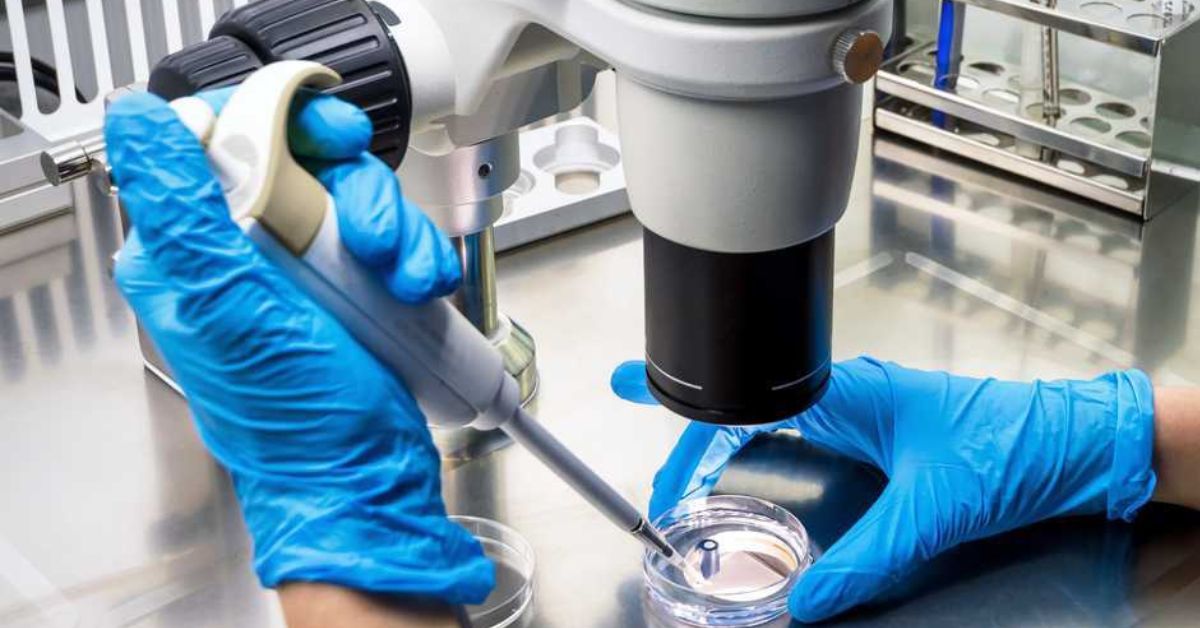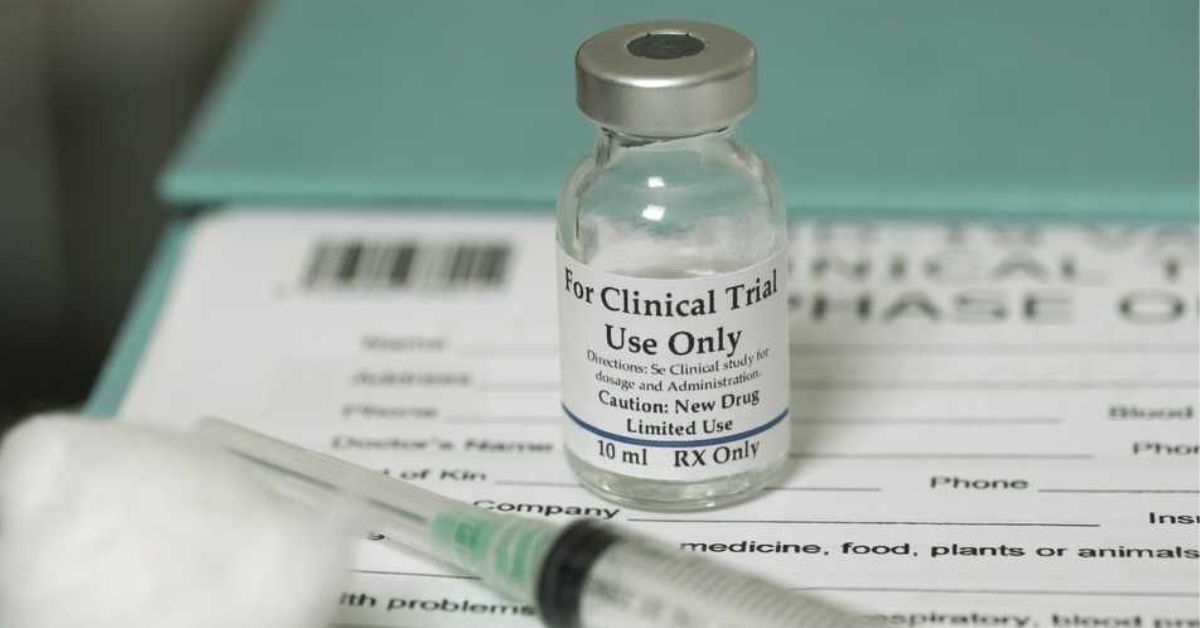12 Patients of US Clinical Trial Emerge ‘Cancer-Free’; Does This Mean Cancer Has A Cure?
At a clinical trial by the Memorial Sloan Kettering Cancer Center, a drug named Dostarlimab was administered to patients with rectal cancer, who have now been declared ‘cancer free’. Here’s all you need to know about the trial and the future of the study.

Feature image credits: Memorial Sloan Kettering Cancer Center
It was a life-changing day for 12 patients living in the United States when they found that their cancer had vanished, thanks to a small clinical trial. Of the total number of patients, these were the patients who completed the trial.
The New York Times reported that a drug named Dostarlimab was administered to these patients — all suffering from rectal cancer — over six months. All 12 patients entered remission after the period.

Dr Luis Diaz, one of the authors of the study published in the New England Medical Journal and oncologist at the Memorial Sloan Kettering Cancer Center (MSK) in New York, told New York Times that this was “the first time this has happened in the history of cancer”.
Dr Andrea Cercek, co-researcher, said, “It’s incredibly rewarding to get these happy tears and happy emails from the patients in this study who finish treatment and realise, ‘Oh my God, I get to keep all my normal body functions that I feared I might lose to radiation or surgery’.”
Dostarlimab is a monoclonal antibody (made by cloning a unique white blood cell) that is used to treat endometrial cancer. Over the last few years, the drug has gained favourable responses from organisations such as the Committee for Medicinal Products for Human Use and the European Medicines Agency, who recommended the granting of conditional marketing authorisation for Jemperli, the brand name under which the drug is sold.
The Independent said, “Dostarlimab is an immunotherapy drug used in the treatment of endometrial cancer, but this was the first clinical investigation into whether it could be effective against rectal cancer tumours. The drug works by unmasking cancer cells, allowing the immune system to identify and destroy them.”
The side effects of the drug include allergic reactions (hives, rashes), fever, and light-headedness. However, it can have many more serious and fatal side effects such as chest pains, irregular heartbeat, seizures, hallucinations, nausea, kidney problems, and more. MSK’s website has a more detailed analysis of such adverse effects.
Patients chosen included those who were 18 years of age or above and had either stage II or III rectal cancer. The study stated, “Other key eligibility criteria included no previous receipt of immunotherapy, chemotherapy, or radiation for the rectal tumour and no active autoimmune disease, active infectious disease, or recent receipt (within the previous seven days) of immunosuppressive therapy.”
The trial participants were administered the drug every three weeks for six months, and their cancers had only advanced locally — they hadn’t spread to their other organs.
In an editorial accompanying the study, the authors noted, “At a median follow-up of one year, none of the 12 patients had needed other treatment, and none had had cancer regrowth. None of the patients had adverse events of grade 3 or higher.”
However, Dr Alan P Venook, a colorectal cancer specialist at the University of California, told New York Times that this could be because the trial did not treat a large enough number of patients, or “these cancers are just plain different”.
Even as the trial has offered an outcome that was previously unheard of, can we say that this drug has “cured” cancer? Do we know the drug’s long-term efficacy? Could the cancer return? Is there any long-term damage that is just yet to show up?
Dr Hanna K Sanoff, gastrointestinal medical oncologist and clinical investigator, noted in the editorial, “These results are cause for great optimism, but such an approach cannot yet supplant our current curative treatment approach. The endpoint presented, clinical complete response, is an imperfect surrogate for long-term cancer control. Patients who have a clinical complete response after chemotherapy and radiation therapy have a better prognosis than those who do not have a clinical complete response, yet cancer regrowth occurs in 20 to 30% of such patients when the cancer is managed nonoperatively.”
She adds, “These recurrence dynamics may (or may not) differ between immunotherapy and chemoradiotherapy and between early- and late-stage disease. Very little is known about the duration of time needed to find out whether a clinical complete response to Dostarlimab equates to cure….Whether the results of this small study conducted at Memorial Sloan Kettering Cancer Center will be generalisable to a broader population of patients with rectal cancer is also not known.”
Regardless, this tiny medical trial may have been a small step for the medical community, and a giant leap for the twelve patients, who have had their hope renewed. As Dr Sanoff noted, “Despite these uncertainties, [the doctors of the trial] and their patients who agreed to forgo standard treatment for a promising but unknown future with immunotherapy have provided what may be an early glimpse of a revolutionary treatment shift.”
Meanwhile, the authors of the study are now gunning to reproduce their findings on a larger scale, which they say should be facilitated by academic as well as community practices, as well as participation of patients from diverse racial and ethnic backgrounds.
Sources:
‘A Cancer Trial’s Unexpected Result: Remission in Every Patient’: By Gina Kolata for New York Times, Published on 5 June 2022.
‘PD-1 Blockade in Mismatch Repair–Deficient, Locally Advanced Rectal Cancer’: Written By Various Authors for The New England Journal of Medicine, Published on 5 June 2022.
‘Improving Treatment Approaches for Rectal Cancer’: Written by Dr Hanna K Sanoff for The New England Journal of Medicine, Published on 5 June 2022.
‘Rectal Cancer Disappears After Experimental Use of Immunotherapy’: Published by Memorial Sloan Kettering Cancer Center on 5 June 2022.
‘All Cancer Patients in Drug Trial Appear to be Cured for ‘First Time in History’’: Written by Samuel Lovett for The Independent, Published on 8 June 2022.
Edited by Yoshita Rao
This story made me
- 97
- 121
- 89
- 167
Tell Us More
We bring stories straight from the heart of India, to inspire millions and create a wave of impact. Our positive movement is growing bigger everyday, and we would love for you to join it.
Please contribute whatever you can, every little penny helps our team in bringing you more stories that support dreams and spread hope.



















